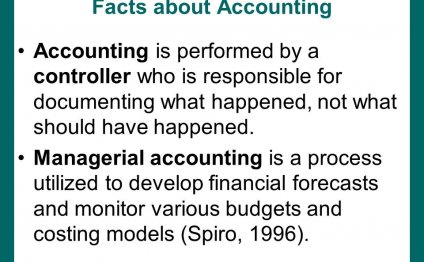
Why is Accounting important for Financial analysis?
Related Terms: Balance Sheets; Cash Flow Statements; Income Statements; Return on Assets
Financial analysis is an aspect of the overall business finance function that involves examining historical data to gain information about the current and future financial health of a company. Financial analysis can be applied in a wide variety of situations to give business managers the information they need to make critical decisions. The ability to understand financial data is essential for any business manager. Finance is the language of business. Business goals and objectives are set in financial terms and their outcomes are measured in financial terms. Among the skills required to understand and manage a business is fluency in the language of finance—the ability to read and understand financial data as well as present information in the form of financial reports.
The finance function in business involves evaluating economic trends, setting financial policy, and creating long-range plans for business activities. It also involves applying a system of internal controls for the handling of cash, the recognition of sales, the disbursement of expenses, the valuation of inventory, and the approval of capital expenditures. In addition, the finance function reports on these internal control systems through the preparation of financial statements, such as income statements, balance sheets, and cash flow statements.
Finally, finance involves analyzing the data contained in financial statements in order to provide valuable information for management decisions. In this way, financial analysis is only one part of the overall function of finance, but it is a very important one. A company's accounts and statements contain a great deal of information. Discovering the full meaning contained in the statements is at the heart of financial analysis. Understanding how accounts relate to one another is part of financial analysis. Another part of financial analysis involves using the numerical data contained in company statements to uncover patterns of activity that may not be apparent on the surface.
DOCUMENTS USED IN FINANCIAL ANALYSIS
The three main sources of data for financial analysis are a company's balance sheet, income statement, and cash flow statement.
Balance Sheet
The balance sheet outlines the financial and physical resources that a company has available for business activities in the future. It is important to note, however, that the balance sheet only lists these resources, and makes no judgment about how well they will be used by management. For this reason, the balance sheet is more useful in analyzing a company's current financial position than its expected performance.
The main elements of the balance sheet are assets and liabilities. Assets generally include both current assets (cash or equivalents that will be converted to cash within one year, such as accounts receivable, inventory, and prepaid expenses) and noncurrent assets (assets that are held for more than one year and are used in running the business, including fixed assets like property, plant, and equipment; long-term investments; and intangible assets like patents, copyrights, and goodwill). Both the total amount of assets and the makeup of asset accounts are of interest to financial analysts.
YOU MIGHT ALSO LIKE



Share this Post
Related posts
Accounting for Financial Institutions
IFRS for Banks and Financial Institutions — Capworth Training
Read MoreHow to study for Financial Accounting?
Succeeding in any field of study requires the use of a solid strategy and accounting is no exception. As an undergraduate…
Read More










